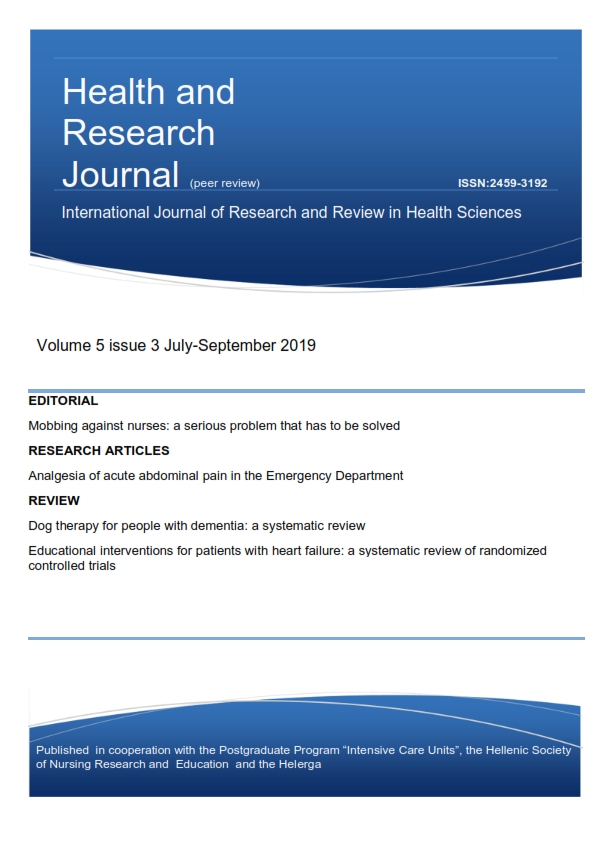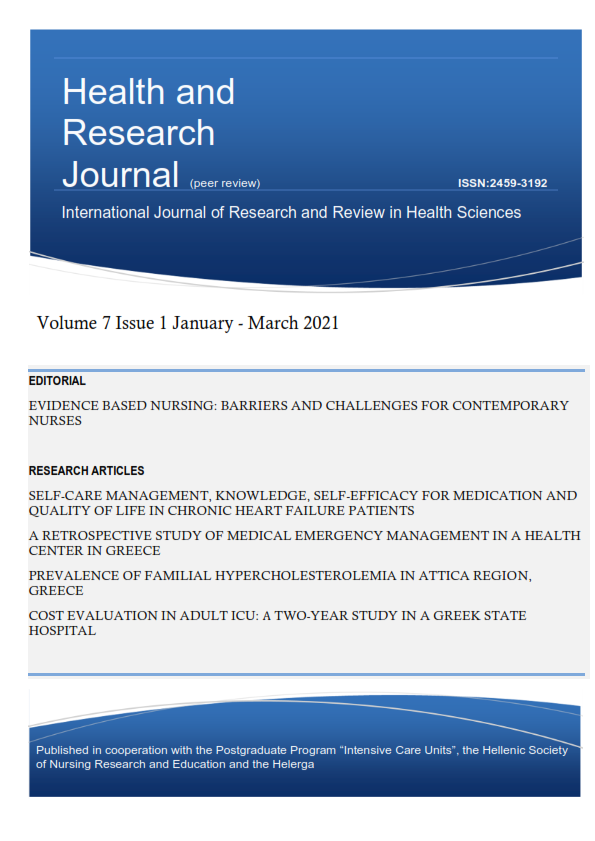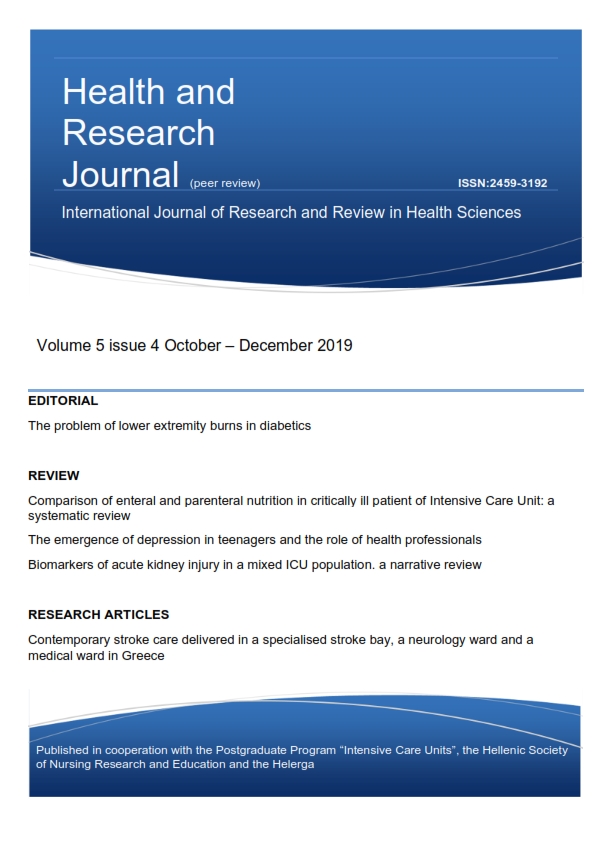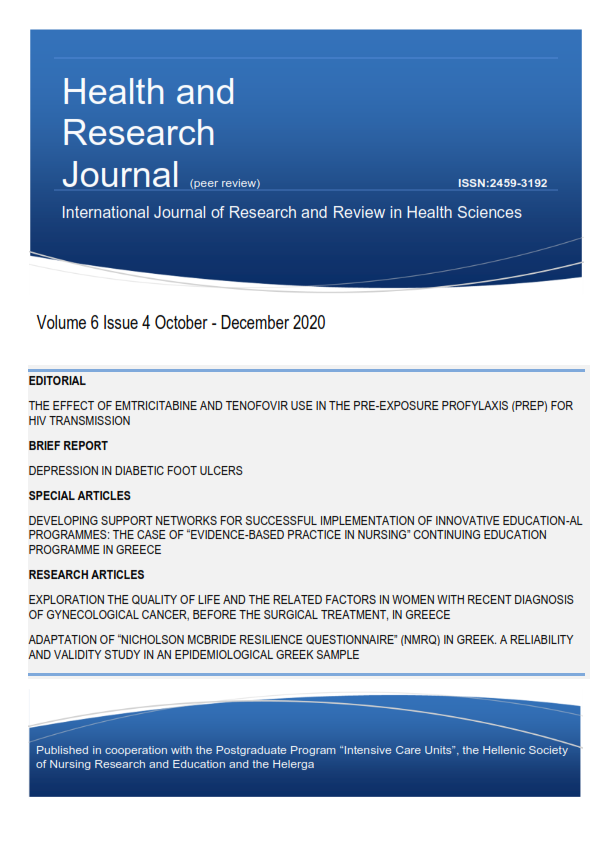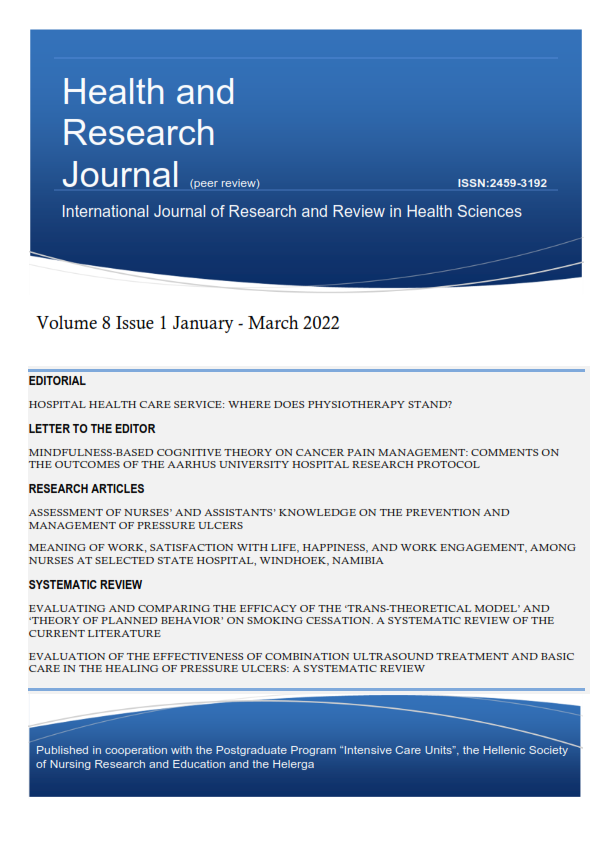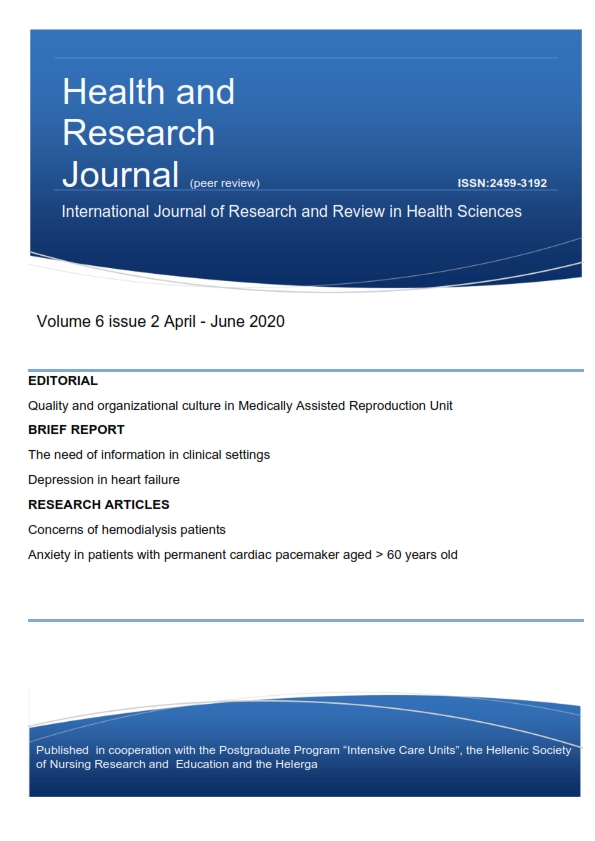Correlation of the working environment with the quality of nursing care
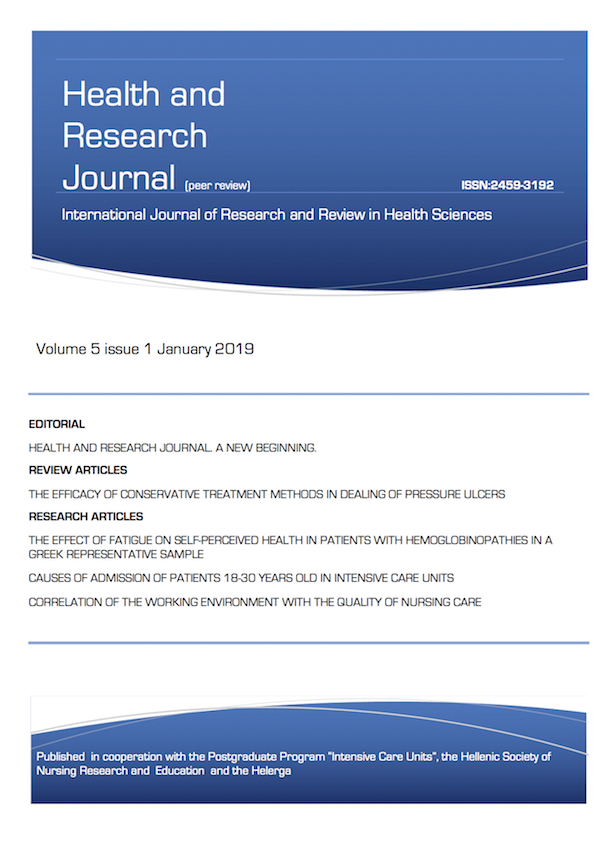
Abstract
Introduction: Improvement of the quality of health care and patients' satisfaction during their hospitalisation depends on many interconnected factors.
Aim: This research study intends to investigate four aspects of the nursing environment (autonomy, relationships between doctors and nurses, commanding support and checking working conditions) and the effect they have on nursing care.
Material and Methods: The study sample consists of 127 public hospital nurses with a mean age of 45 years (SD = 6.8 years). The questionnaire which was used was based on the revised version of NURSING WORK INDEX-REVISED (NWI-R). Data analysis was performed by the statistical package SPSS 19.0.
Results: Of the total sample, 72.4% of participants agree that supervisors support their staff and 60.6% thinks that there is support from nurses for the decisions of their colleagues. Also 10.3% agree that there are enough resources that allow them to spend time with patients, while 65.3% claims that they spend their personal time on different duties. Furthermore, correlation was detected among the aspects of autonomy, relationships between doctors and nurses and ''Control over the practice setting''. The workplace affects the autonomy's percentages (p<0.020), control of working conditions (p<0.004) and was related to organisational support (p<0.020). According to the above, nurses due to lowest direction's rating have less satisfaction from their research (p<0.004).
Conclusion: The nurses’ job satisfaction is significantly related to the ‘’autonomy’’ factor and affects the quality of care provided to the patient. By investing in actions and practices that increase autonomy ,improve the control of working conditions as well as the cooperation between nurses and doctors and by increasing organisational support for the employee, there is significant improvement of the quality of nursing care and increased job satisfaction.
Article Details
- How to Cite
-
Ntatseri, E., Gerogianni, G., Kelesi, M., & Fasoi, G. (2019). Correlation of the working environment with the quality of nursing care. Health & Research Journal, 5(1), 30–37. https://doi.org/10.12681/healthresj.19504
- Section
- Original Articles
Copyright notice:
Authors retain copyright of their work and grant the Health and Research Journal the right of first publication.
License:
Articles are published under the Creative Commons Attribution 4.0 International License (CC BY 4.0). This license permits use, sharing, adaptation, distribution, and reproduction in any medium or format, including for commercial purposes, provided that appropriate credit is given to the author(s) and the original publication in this journal, a link to the license is provided, and any changes are indicated.
Attribution requirement:
Any reuse must include the article citation and DOI (where available), and indicate if changes were made.



